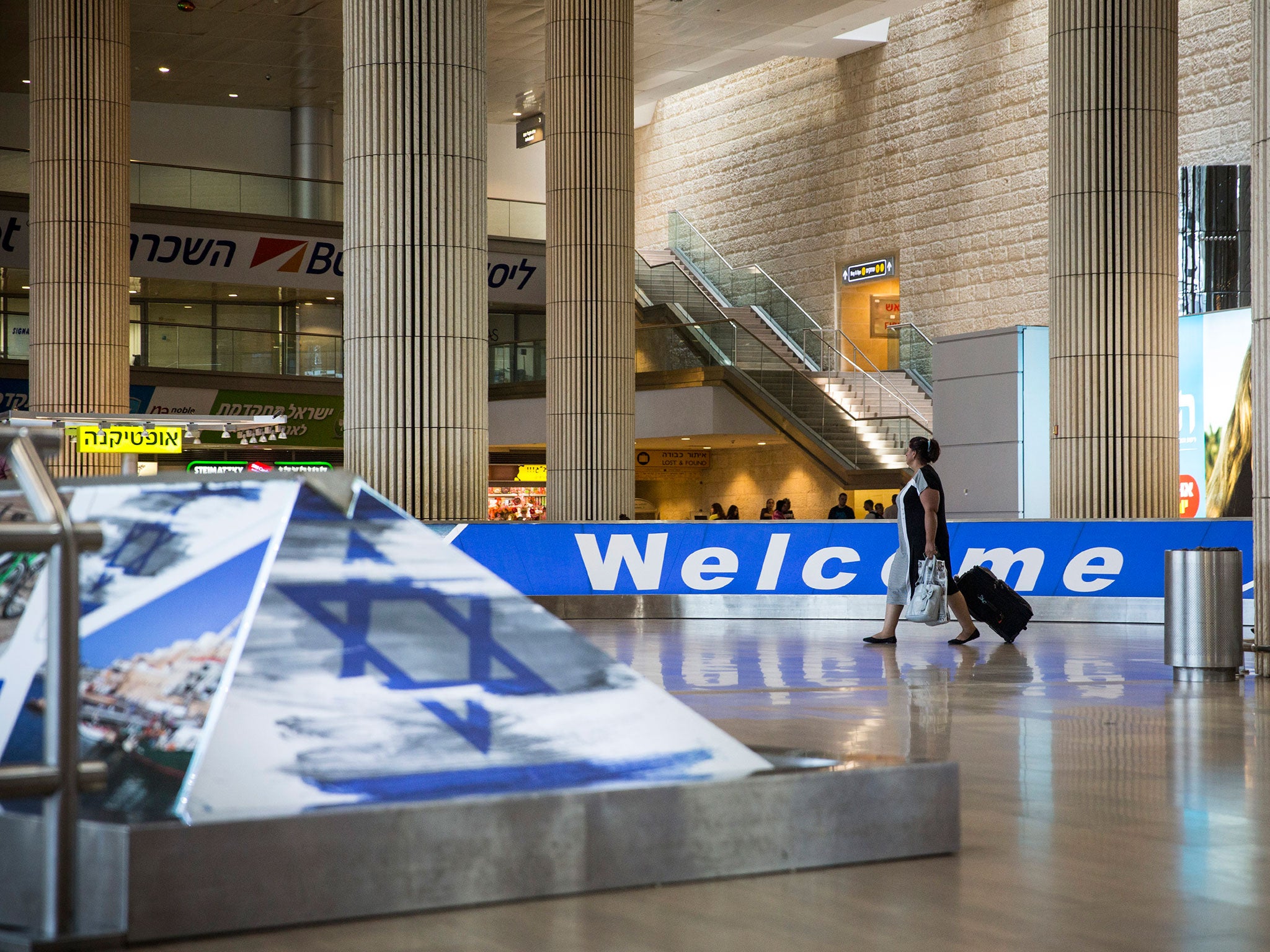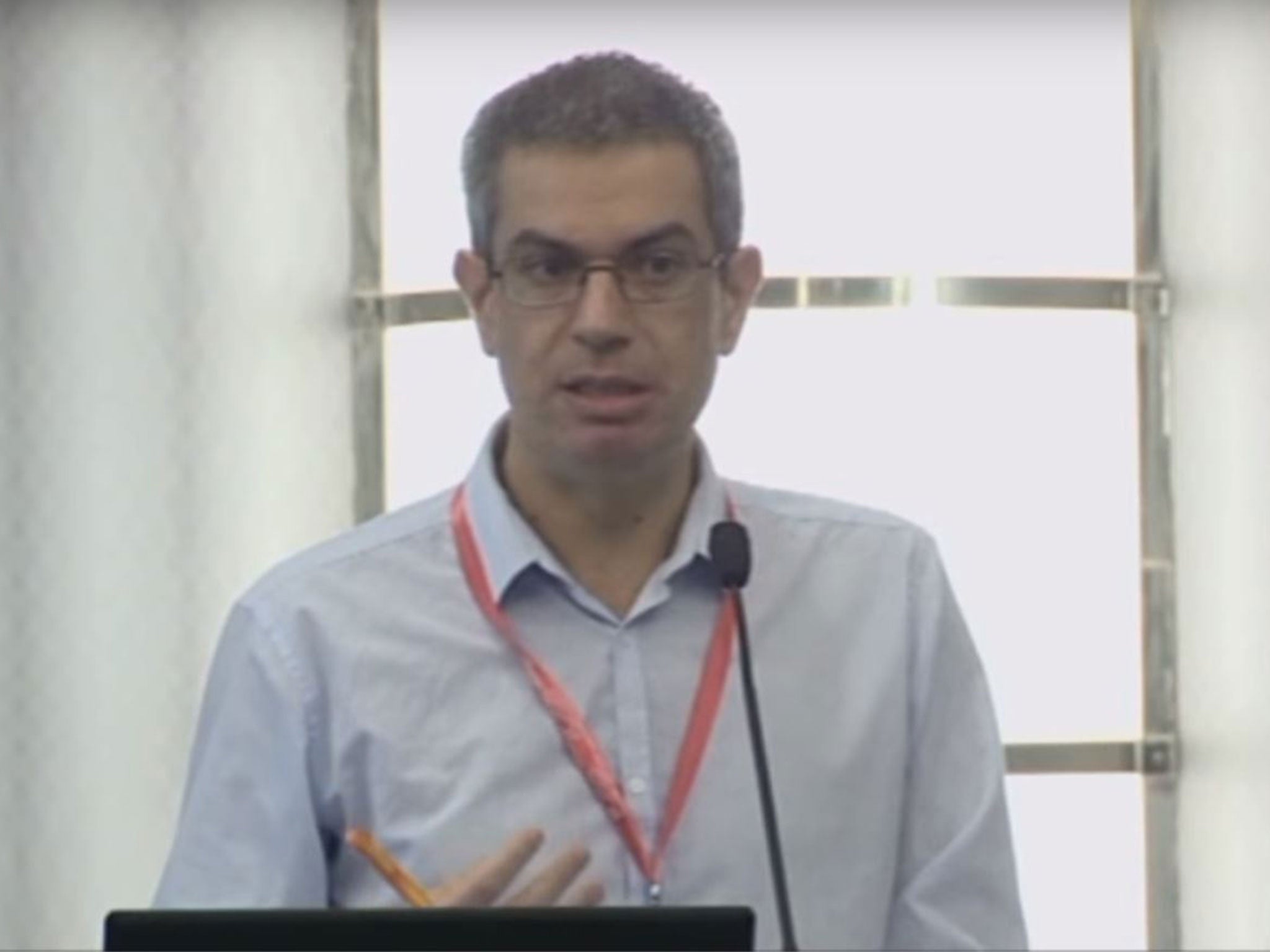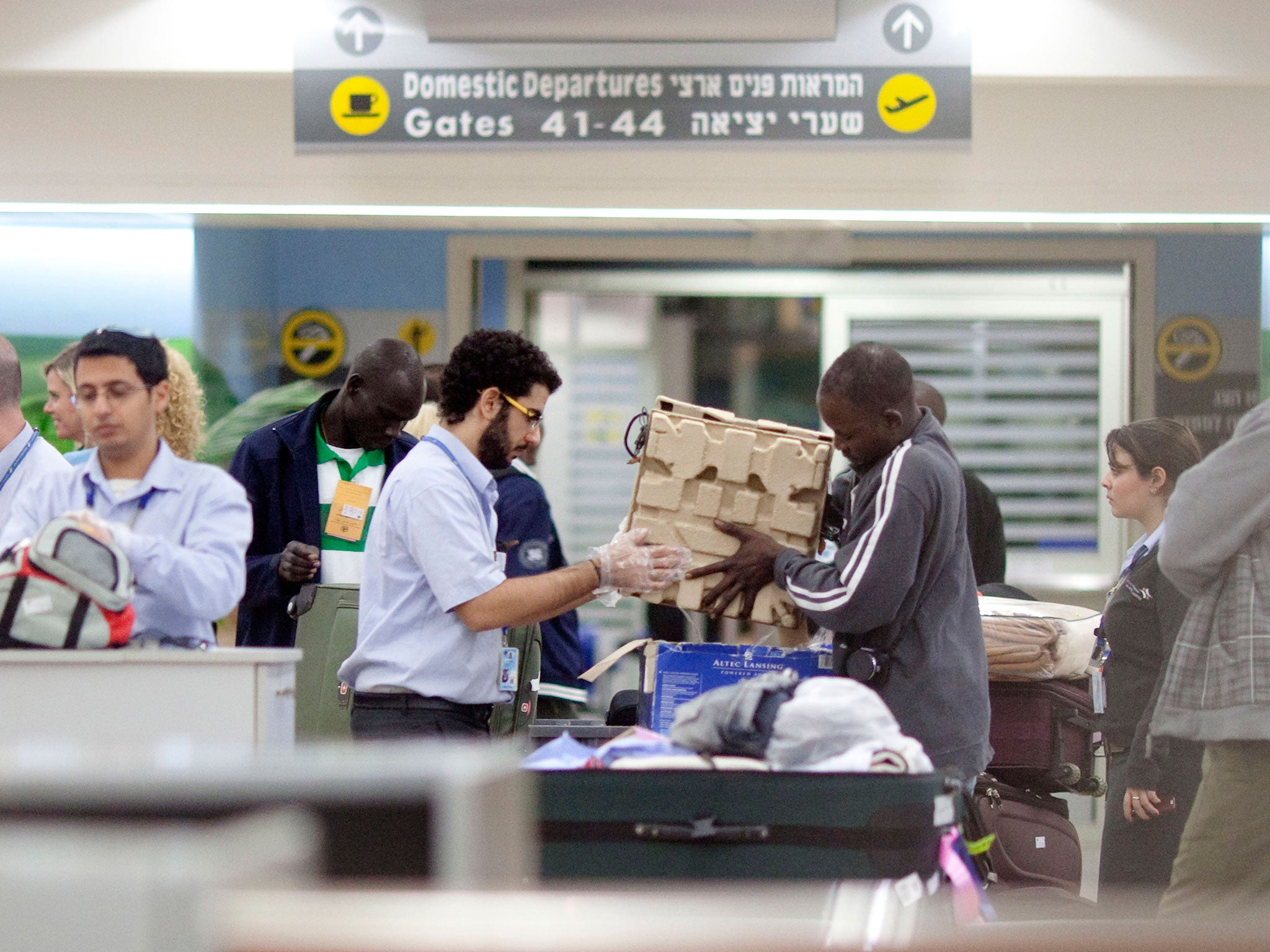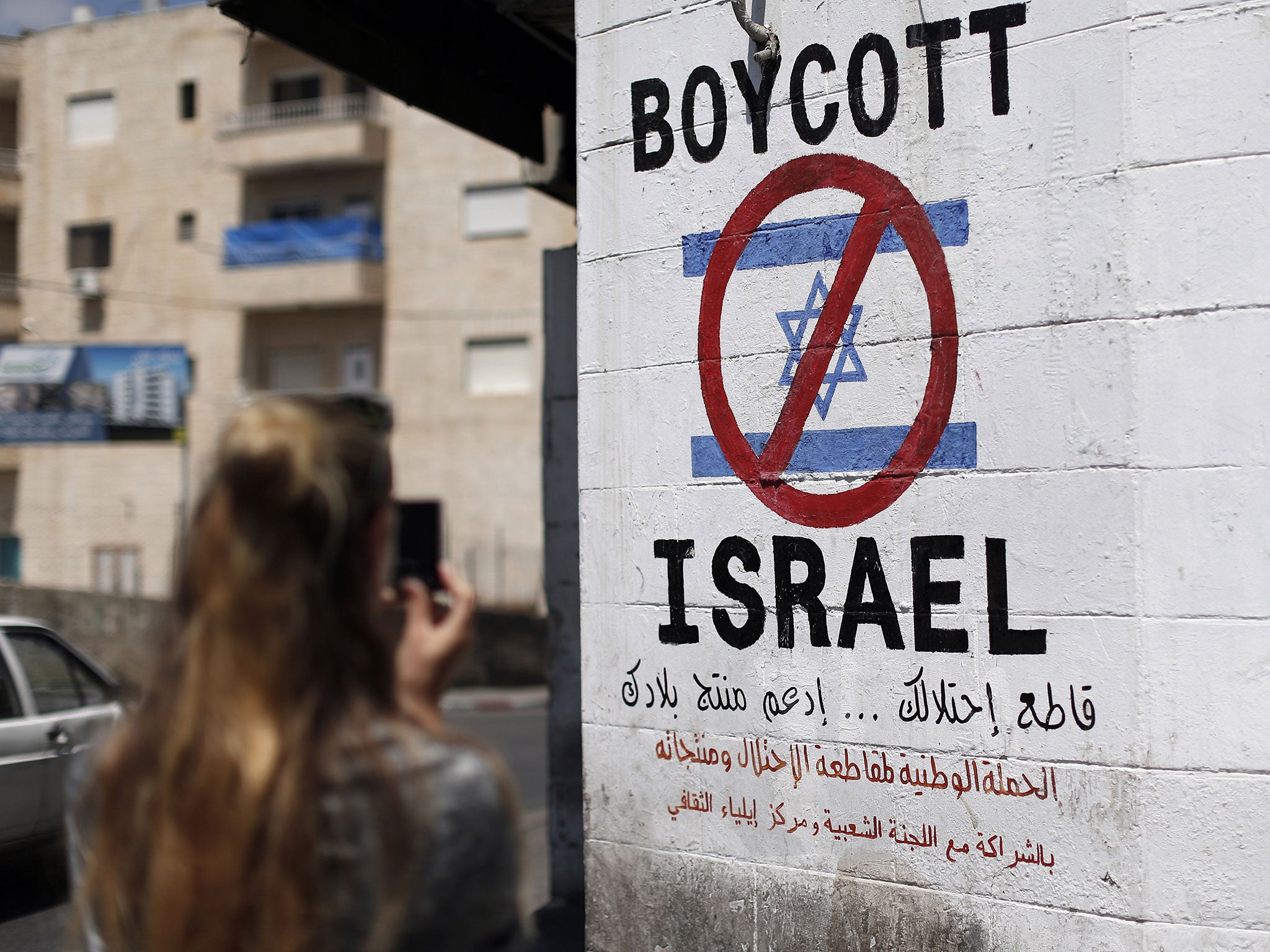Israel refuses entry to 115 British citizens in 2016 amid 'discriminatory' treatment of pro-Palestinian activists
SOAS condemned 'arbitrary breach of academic freedom' after lecturer turned away

Your support helps us to tell the story
From reproductive rights to climate change to Big Tech, The Independent is on the ground when the story is developing. Whether it's investigating the financials of Elon Musk's pro-Trump PAC or producing our latest documentary, 'The A Word', which shines a light on the American women fighting for reproductive rights, we know how important it is to parse out the facts from the messaging.
At such a critical moment in US history, we need reporters on the ground. Your donation allows us to keep sending journalists to speak to both sides of the story.
The Independent is trusted by Americans across the entire political spectrum. And unlike many other quality news outlets, we choose not to lock Americans out of our reporting and analysis with paywalls. We believe quality journalism should be available to everyone, paid for by those who can afford it.
Your support makes all the difference.More than 100 British citizens have been refused entry to Israel so far this year as lawyers raise concern over the “discriminatory” use of immigration laws against pro-Palestinian activists.
Dr Adam Hanieh, a senior lecturer at the School of Oriental and African Studies (SOAS) was among those turned away at the border in what university leaders called an “an arbitrary breach of academic freedom”. The development studies lecturer, who was due to deliver three classes at Birzeit University in the West Bank, was held for 10 hours after landing at Ben Gurion Airport on 12 September.

University officials said he was put in a detention centre overnight, before being returned to London the following morning and given a 10-year ban from entering Israel.
Dr Hanieh is among of at least 115 British citizens refused entry to Israel since the start of this year, according to Israeli government figures.
In response to a Parliamentary question from Mark Durkan, the SDLP MP for Foyle, Middle East minister Tobias Ellwood said 129,000 British nationals had visited the country in the same period. He confirmed 50 were turned away from Ben Gurion Airport – the only international airport in Israel and the Occupied Palestinian Territories - and 65 at the Allenby Bridge crossing from Jordan into the West Bank.
No breakdown was available of the reasons for the refusals, which can include administrative issues such as having an incorrect visa, “presenting false information” about plans and security concerns.
Emily Schaeffer Omer-Man, a human rights lawyer who represents foreigners denied entry, said legitimate rules were sometimes applied “in a discriminatory way”.
“What we’ve seen as a pattern in cases over the past five years is that those who are of Palestinian or Arab heritage, or who are coming in to do humanitarian work particularly in the West Bank, are disproportionately targeted,” she added.
“Typically someone who is either Jewish, does not have a history of activism, or who is not of Palestinian or Arab heritage, will have an easier time getting quickly through passport control. A lot of times issues only come up because questioning goes deeper, because the person raises a flag in the mind of border control.”

Visitors arriving at the airport in Tel Aviv or other border crossings are questioned on arrival by officials who use the interview to decide the extent of access granted. People may be given entry cards or passport stamps granting leave to enter for a period of up to three months, or taken for further questioning if concerns are raised.
Travel advice from the Foreign and Commonwealth Office (FCO) warns that Israeli border officials may require travellers to sign pledges not to enter the Palestinian territories without authorisation. It says access to travellers’ personal e-mail or social media accounts has been requested as a condition of entry and cautions that British nationals of Palestinian origin “may face problems”.
Following interrogation, officials can refuse entry and impose travel bans for up to 10 years, detaining visitors until they can be returned to their country of origin.
Those who are allowed to enter Israel are questioned again upon departure and have their baggage searched, with officials able to inspect electrical items such as laptops, phones and cameras. The information gathered is then stored and may be used as evidence to deny someone entry in the future.
The vast majority of refusals are not believed to be politically-motivated, but there is growing concern over the establishment of a taskforce with the aim of identifying and blocking supporters of the Boycott, Divestment and Sanctions (BDS) movement.
“Boycott activists must not be allowed to enter Israel,” said public security minister Gilad Erdan in August.

Ms Schaeffer Omer-Man said the taskforce is “legally problematic”, adding: “Every state has the right to protect its borders but political leanings alone are not sufficient grounds.”
She detailed cases where foreigners who have joined pro-Palestinian demonstrations, supported the BDS movement on social media or critiqued the Israeli government elsewhere have been denied entry to the country.
Visitors being interrogated may be asked to name their Palestinian contacts, or give over the Facebook account details, allowing Israeli officials to search their friend lists, communications, comments and event history.
“All of this is very effective at intimidating people and discouraging them from coming if they’ve been active in non-violent demonstrations,” Ms Schaeffer Omer-Man said.
“It is not a coincidence that these procedures are long and exhausting.”
Gary Spedding, a former organiser for the Alliance Party’s youth wing in Northern Ireland, is among those refused and he believes he was targeted because of his pro-Palestinian activism. The 26-year-old attempted to visit Israel and the West Bank in January 2014 to meet Israeli politicians and humanitarian groups but was detained at Ben Gurion Airport.
Mr Spedding told The Independent he was held for eight hours, “interrogated intensely” and strip-searched twice as officials took his mobile phone and allegedly examined his messages, photos, emails and contacts.
He was held overnight in a detention centre before being put on a flight back to the UK the following day, with a 10-year travel ban.
“It was an awful experience,” Mr Spedding said. “The facility was abysmal, it struck me very much that I was one of the few people who are white or of a Western background.
“The vast majority of people I saw were African refugees or migrants – we were kept separate from the Palestinian or Arab detainees.”
The human rights activist, who is currently studying for a masters at Ulster University, is fighting a legal battle to scrap his 10-year travel ban, which was lowered to five years on appeal, with the next court date in November.
Documents from a 2014 decision at the Jerusalem immigration tribunal said Mr Spedding was denied entry for “security reasons” as the organiser of a protest at Queen’s University in Belfast where an Israel guest lecturer was attacked in 2011.
Mr Spedding said he had been “completely vindicated” over direct involvement in the violence and said allegations that his presence in the West Bank amounted to a risk to public order were “nonsense”.
“The way I’ve been treated in the past two years has hindered my work,” he added. “It’s had a significant impact on my life … I still have nightmares (about the detention facility).”
An Israeli official declined to comment on the case and said those refused entry to Israeli were a small proportion of visitors.
“165,000 British nationals have entered Israel since January 2016, enjoying what Israel has to offer in tourism, business and so much more, as part of the ever-growing relationship between the two countries,” he added.
“Those who were refused entry – who make up just 0.07 per cent of the total number of visitors – are eligible to appeal the decision through Israel’s independent court system, in a similar process to the one available to Israelis who are refused entry to the UK.”
A spokesperson for the FCO said the British Government has raised concerns with Israeli authorities when receiving reports of the “mistreatment” of citizens, adding: “We do not routinely raise the matter of British nationals being refused entry to Israel. Israel’s border controls are sovereign, just as the UK’s are.”